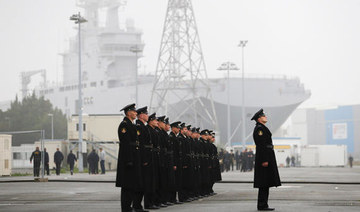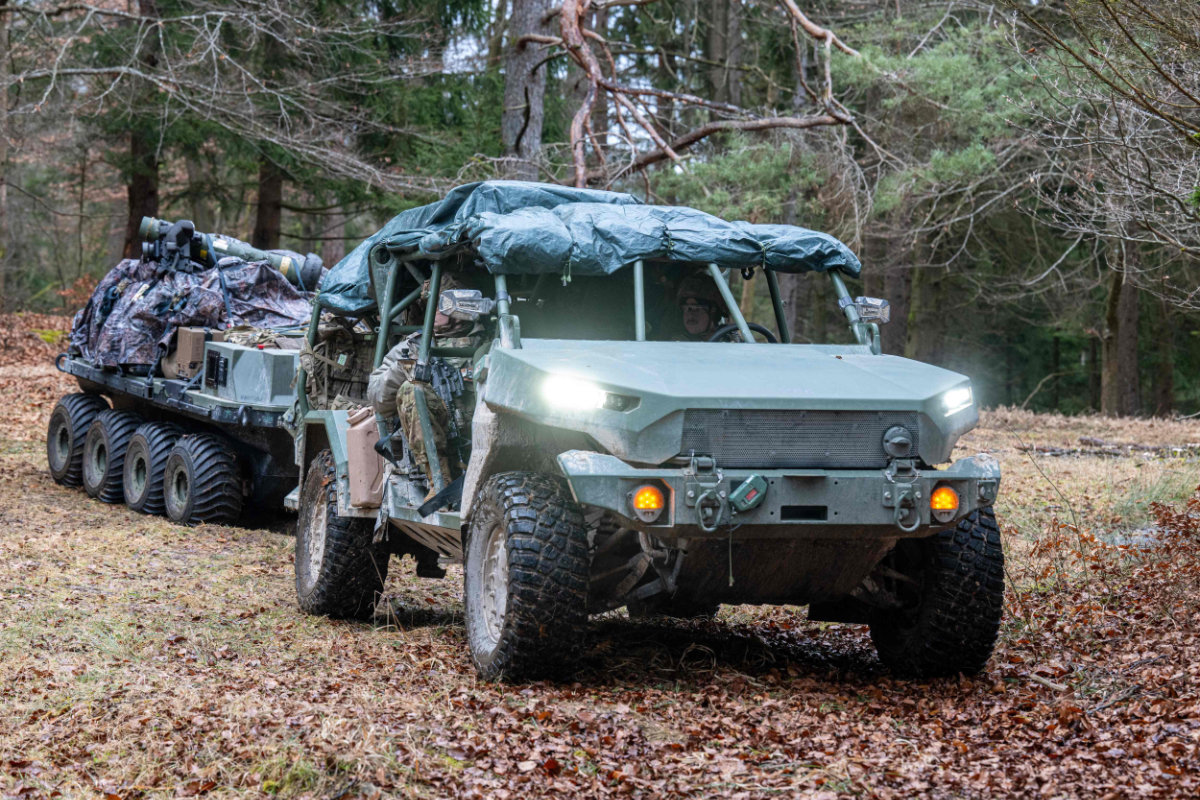CARACAS: A fleet of Russian warships and aircraft on Wednesday entered the Caribbean in what some see as a projection of strength as tensions grow over Western support for Ukraine.
The US military expects the exercises will involve a handful of Russian ships and support vessels, which may also stop in Venezuela.
Russia is a longtime ally of Venezuela and Cuba, and its warships and aircraft have periodically made forays into the Caribbean. But this mission comes less than two weeks after President Joe Biden authorized Ukraine to use US-provided weapons to strike inside Russia to protect Kharkiv, Ukraine’s second-largest city, prompting President Vladimir Putin to suggest his military could respond with “asymmetrical steps” elsewhere in the world.
“Most of all, the warships are a reminder to Washington that it is unpleasant when an adversary meddles in your near abroad,” said Benjamin Gedan, director of the Latin America Program at the Washington-based Wilson Center think tank, referring to the Western involvement in Russia’s war in Ukraine. “It also reminds Russia’s friends in the region, including US antagonists Cuba and Venezuela, that Moscow is on their side.”
Although the fleet includes a nuclear-powered submarine, a senior US administration official told The Associated Press that the intelligence community has determined no vessel is carrying nuclear weapons. The official, who spoke on the condition of anonymity to provide details that had not been announced publicly, said Russia’s deployments “pose no direct threat to the United States.”
US officials last week said the Russian ships were expected to remain in the region through the summer.
In December 2018, a pair of Russian nuclear-capable Tu-160 strategic bombers visited Venezuela in what the Russian military described as a training mission. Russia also sent Tu-160s and a missile cruiser to Venezuela in 2008 amid tensions with the US after Russia’s brief war with Georgia. A pair of Tu-160s also visited Venezuela in 2013.
Russian ships have occasionally docked in Havana since 2008, when a group of Russian vessels entered Cuban waters in what state media described as the first such visit in almost two decades. In 2015, a reconnaissance and communications ship arrived unannounced in Havana a day before the start of discussions between US and Cuban officials on the reopening of diplomatic relations.
A State Department spokesperson told the AP that Russia’s port calls in Cuba are “routine naval visits,” while acknowledging its military exercises “have ratcheted up because of US support to Ukraine and exercise activity in support of our NATO allies.”
Russian military and defense doctrine holds Latin America and the Caribbean in an important position, with the sphere seen as under US influence acting as a counterweight to Washington’s activities in Europe, said Ryan Berg, director of the Americas Program at the Washington-based Center for Strategic and International Studies.
“While this is likely little more than provocation from Moscow, it sends a message about Russia’s ability to project power into the Western Hemisphere with the help of its allies, and it will certainly keep the US military on high alert while they are in theater,” Berg said.
The timing of this year’s mission may serve Russia’s purposes, but it is also raising questions of whether Venezuela’s government may use it as an opportunity to shore up President Nicolás Maduro’s bid for a third term in the July 28 election.
Venezuela’s chief opposition coalition is threatening the ruling party’s decadeslong grip on power, and engineering a crisis built on simmering tensions with Guyana is among the scenarios that analysts believe Maduro’s government could use to delay or cancel the vote.
“It is almost unthinkable that Maduro will risk actually losing power,” said Evan Ellis, Latin America research professor with the US Army War College.
“The most obvious alternative, consistent with Venezuelan military’s recent moves ... is to fabricate an international crisis that would provide an excuse for ‘postponing’ Venezuela’s election,” he continued. “The presence of Russian warships in the vicinity would greatly add to the escalation risk of any such crisis that Maduro would fabricate, which is possibly the point.”
Venezuelan voters approved a referendum in December to claim sovereignty over the Essequibo territory, which accounts for two-thirds of Guyana and lies near big offshore oil deposits. Venezuela argues it was stolen when the border was drawn more than a century ago.
Guyana is awaiting a decision regarding Venezuela’s claim from the International Court of Justice, but Maduro’s government does not recognize its authority.
The US supports Guyana in the ongoing dispute and assisted it with surveillance flights late last year when Venezuela had threatened to invade the country. Guyana’s government last month gave permission for the US military to fly two powerful F/A-18F Super Hornet jets over its capital in a demonstration of close cooperation.
Guyana’s Vice President Bharrat Jagdeo on June 6 acknowledged that the Russian fleet does not represent “a direct threat.”
“Nevertheless, we’re vigilant, and we’re keeping this issue firmly in our policy radar,” Jagdeo said in a press conference.
Russian warships and aircraft enter the Caribbean for military exercises
https://arab.news/9kjnu
Russian warships and aircraft enter the Caribbean for military exercises

- Russia is a longtime ally of Venezuela and Cuba, and its warships and aircraft have periodically made forays into the Caribbean
- This mission comes less than two weeks after President Joe Biden authorized Ukraine to use US-provided weapons to strike inside Russia to protect Kharkiv



























